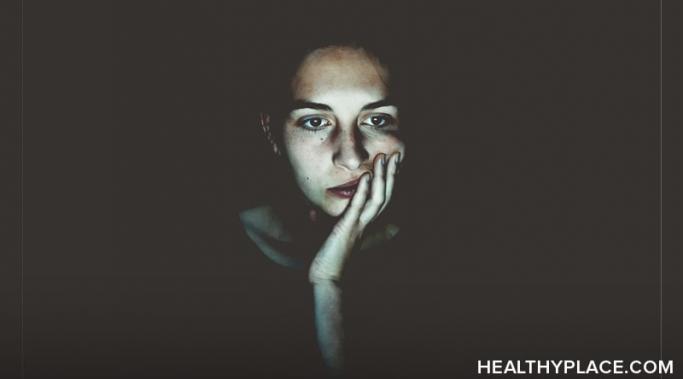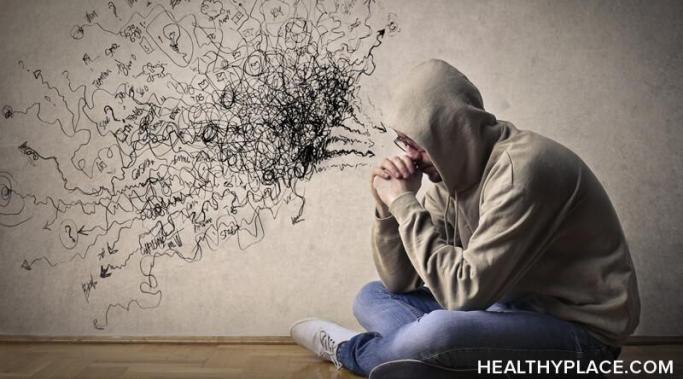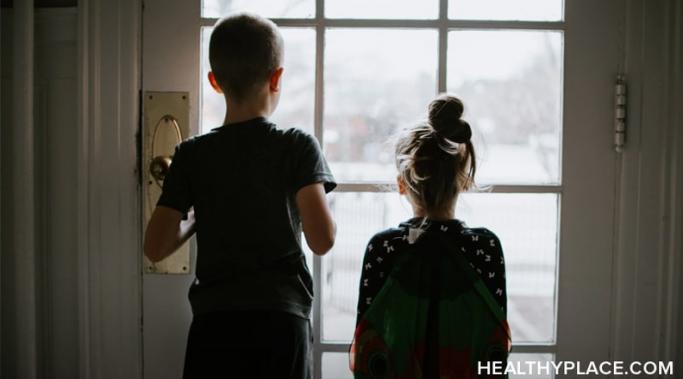Blogs
It is no secret that good company is crucial to fight boredom, loneliness, and even depression. However, there is a common belief that good company can only be found in another person. I believe that anything that keeps you engaged and/or entertained is good company. While the ideal situation is to spend time with someone you care about; well, inanimate objects are the next best option.
This is going to sound, to some, unduly harsh, but I’ve been finding it more and more frustrating to be around people who don’t have anxiety, because it’s been made very clear to me that most people who don’t have it don’t have any clue how to react to anxiety when it happens.
When I'm hypomanic, I tend to overcommit myself. Yet, when I tell people that I have bipolar II disorder, I often hear "Oh, I'm sure the depression sucks, but I wish that I had a little taste of mania! You must feel great and be so productive when you're manic." While not intentionally harmful, such comments display an ignorance of the realities of living with bipolar mania (or, in my case, hypomania). Many people have the miconception that mania puts one into a hyper-productive state. But the truth is that mania more often than not hinders performance rather than aids it.
When you are working to build your self-esteem, try setting one intention at a time. Sometimes when we are trying to change things that make us unhappy, we do really well at making a list of grievances but find it difficult to begin the work. We may become stuck feeling negative because of the number of things we wish were different. To avoid becoming overwhelmed, set one intention each day that will help you build self-esteem.
Before offering my advice, most loved of those in eating disorder recovery want to know how they can help, but understandably, people aren't always sure where to go for it. In this video, I talk about the one thing that well-meaning, but misguided, loved ones would do that has undercut my confidence in recovery.
I'm not alone in using video games like "Animal Crossing" to cope with my mental illness. Ever since the shelter-at-home orders back in February, gamers have been purchasing the Nintendo Switch faster than they can be physically made. Video games became a form of escapism, and what was once a pastime became a coping mechanism for those stuck at home. While I’ve been trapped in my apartment in this pandemic, no Nintendo Switch game has been more useful for exploring and coping with my mental illness than "Animal Crossing."
Recovery from mental illness is a long, complicated path, and even though the whole point of recovery is to help us grow, it still comes with limitations, setbacks, and collateral damage. Sometimes, in the midst of all the negatives, I lose sight of the positives, lose sight of hope. And I can't help but wonder, what if I never recover from mental illness?
This past weekend, my brother and I were reunited after quarantine -- seeing each other in person for the first time since March. He drove over to my house and met my new puppy, and we spent the day walking, eating, and generally catching up.
How do we cultivate hope when feeling anxious? This question has been occupying me a lot in the last few weeks because in many ways, anxiety seems to act contrary to hope. Typically when we feel anxious, we're anticipating some future event that we are worried about or afraid of. By contrast, hope is defined as a positive expectation about some future event occuring.
In recent years, constant connectivity and hustle culture have made it difficult for us to define boundaries between work and life. Now that many of us are working from home owing to the coronavirus pandemic-induced social distancing, the lines have become more blurred than ever.









